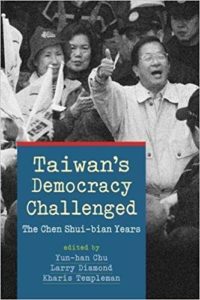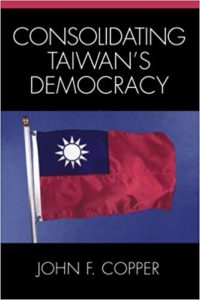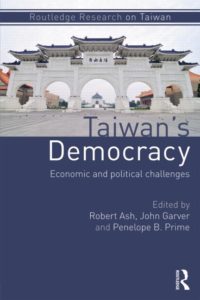 Taiwan’s president has accused China of disrupting international stability and committed to boosting her country’s defenses in the face of what Taipei sees as a growing threat from Beijing, The Financial Times reports:
Taiwan’s president has accused China of disrupting international stability and committed to boosting her country’s defenses in the face of what Taipei sees as a growing threat from Beijing, The Financial Times reports:
In a nationally broadcast address on Wednesday, Tsai Ing-wen also stressed the international importance of Taiwan’s democratic values and raised concerns about Chinese infiltration, in the latest sign of Taipei’s hardening resistance to Beijing’s opposition to her government. According to Taiwan’s government-funded Institute for National Defense and Security Research, Beijing’s attempts to meddle in the polls via cyber-based tactics have intensified ahead of Taiwan’s November polls.
“Disinformation disseminated via social media has become a serious challenge to democracy,” said Wu Jun-deh, a researcher in the institute’s division of cyber warfare and information security. “These threats are unprecedented and will continue until we find effective ways to counter.”
 Beijing is chivvying Taiwan’s vibrant democracy diplomatically and militarily. China’s authoritarian and mercantilist drift at home and aggressiveness abroad are discrediting American advocates of engagement and bolstering proponents of a new cold war across a broad political spectrum, notes Douglas H. Paal, vice-president for studies and director of the Asia Programme at the Carnegie Endowment for International Peace.
Beijing is chivvying Taiwan’s vibrant democracy diplomatically and militarily. China’s authoritarian and mercantilist drift at home and aggressiveness abroad are discrediting American advocates of engagement and bolstering proponents of a new cold war across a broad political spectrum, notes Douglas H. Paal, vice-president for studies and director of the Asia Programme at the Carnegie Endowment for International Peace.
An important generational milestone has been passed without drawing attention to itself, he writes for The South China Morning Post:
Across the American government, in every agency and regardless of party identification, those with experience with pre-reform China have retired and been replaced by much younger officials with no personal memory of the “three communiqués” that are the foundation of US-China relations. They did not witness Deng Xiaoping’s “hide and bide” low-key approach to foreign affairs. They did not see how the Chinese people escaped the extremes of the Cultural Revolution.
 Most serving American officials today have worked on China-related issues for about 10 years or less. The China they know started with the eye-popping Beijing Olympics in 2008, not with Nixon’s bold trip to open relations with an impoverished, backward nation. The context is not that of Nixon, seeking to counter the Soviet Union while extricating the US from Vietnam, but of a strong, rising China striving to reshape Asia at American expense.
Most serving American officials today have worked on China-related issues for about 10 years or less. The China they know started with the eye-popping Beijing Olympics in 2008, not with Nixon’s bold trip to open relations with an impoverished, backward nation. The context is not that of Nixon, seeking to counter the Soviet Union while extricating the US from Vietnam, but of a strong, rising China striving to reshape Asia at American expense.
Kao-cheng Wang, dean of the college of international affairs at Taiwan’s Tamkang University, said Ms. Tsai’s speech amounted to a call for support from the U.S. and other countries, the Wall Street Journal adds. “She is presenting the differences between Taiwan and the mainland,” he said. “That includes the value of democracy.”
A recent forum of the Institute for National Defense and Security Research (INDSR) on the threat of disinformation heard Chung Chien-peng, Professor of Politics at Hong Kong’s Lingnan University, describe Beijing’s “sharp power”, a newly fashionable term coined by the National Endowment for Democracy, as “hard power in a soft power glove.”







